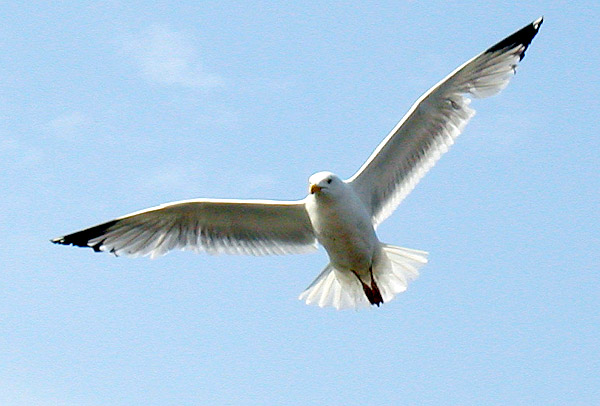.
The second day out, at Gravesend, a pretty young female consumptive passenger, also bound for Italy, came on board, and joined their little English traveling party. She was just Fanny Brawne's age, and just as obviously as Keats himself, not long for this world. Looking upon her with a haunted fascination as if looking into a mirror, he talked himself into exhaustion that second night at sea for her benefit and his own as well -- and to Severn, later in their cabin, confided she appeared to be at a more advanced stage of wasting than himself; as identically in her turn did the female passenger, Miss Cotterell, when for a moment they were alone together on deck, confide to Severn that poor sad Keats' state seemed to her much more pitiable than her own.
But following these alternating empty confidences, both desperately self-deceived invalids were constantly sick on the high seas, Miss Cotterell fainting like clockwork when the portholes of their common cabin were left shut, Keats swept by gales of coughing when they were left open -- as if their respective morbidities were in syzygy -- and Severn remembers Keats' face never lost that starved haunted expression after this time.
But following these alternating empty confidences, both desperately self-deceived invalids were constantly sick on the high seas, Miss Cotterell fainting like clockwork when the portholes of their common cabin were left shut, Keats swept by gales of coughing when they were left open -- as if their respective morbidities were in syzygy -- and Severn remembers Keats' face never lost that starved haunted expression after this time.

Herring gull in flight, south coast of England: photo by Arpingstone, 2003
HMS Dauntless in a following wind, Nov 17, 1850: Capt. Cowper Phipps Coles, RN (National Maritime Museum)
from TC: Junkets on a Sad Planet: Scenes from the Life of John Keats




No comments:
Post a Comment